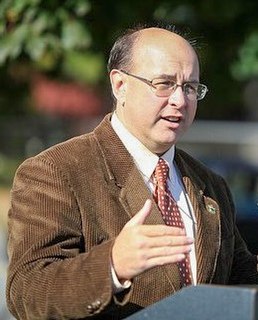A Quote by Joel Salatin
How many of us lobby for green energy or protected lands, but don't engage with the local bounty to lay by for tomorrow's unseasonal reality? That we tend to not even think about this as a foundation for solutions in our food systems shows how quickly we want other people to solve these issues.
Related Quotes
I think as individuals, people overrate the virtues of local food. Most of the energy consumption in our food system is not caused by transportation. Sometimes local food is more energy efficient. But often it's not. The strongest case for locavorism is to eat less that's flown on planes, and not to worry about boats.
I think more and more foundations are putting resources into food activism. But I think that given the state of the economy, foundations won't be giving as much in general. For me it's about working with these existing institutions in communities that people already go to, that people trust, that they know, and determining how best they can play a role in the creation of local food systems and address the ills that are right around them in the community.
We could come together, Democrats and Republicans, to find practical, commonsense solutions to health care, to education, to energy issues, because although I'm a proud Democrat, I'm a prouder American. And I think all of us believe, regardless of our party affiliations, that this is a critical time, where we've got to solve big problems.
Those of us who think about what we eat, how it's grown, those of us who care about the environmental impact of food - we've been educated by fabulous books, like Fast Food Nation and documentaries like Food Inc. But despite these and other great projects that shine a critical light on the topic, every year the food industry spends literally tens of millions of dollars to shape the public conversation about our food system.
In coastal waters rich in runoff, plankton can swarm densely, a million in a drop of water. They color the sea brown and green where deltas form from big rivers, or cities dump their sewage. Tiny yet hugely important, plankton govern how well the sea harvests the sun's bounty, and so are the foundation of the ocean's food chain.
What's going on is that our most fundamental ideas about life are not serving us. They never have. But now, with our advances in communication and technology, the situation has become critical - for our mechanisms have outrun our mentality. And so we find ourselves trying to solve the dilemmas of tomorrow with the solutions of yesterday.
When people come to you with problems or challenges, don't automatically solve them. As a mama bear, you want to take care of your cubs, so you tend to be protective and insulate them against all those things. But if you keep solving problems for your people, they don't learn how to actually solve problems for themselves, and it doesn't scale. Make sure that when people come in with challenges and problems, the first thing you're doing is actually putting it back to them and saying: "What do you think we should do about it? How do you think we should approach this?".
My career was always about working with people, and understanding issues and problems and helping them to solve those issues and problems. How you deal with people - that's what diplomacy is all about. So while I'm not a career diplomat, many of the skills I had seemed to directly translate into the diplomatic arena.


































